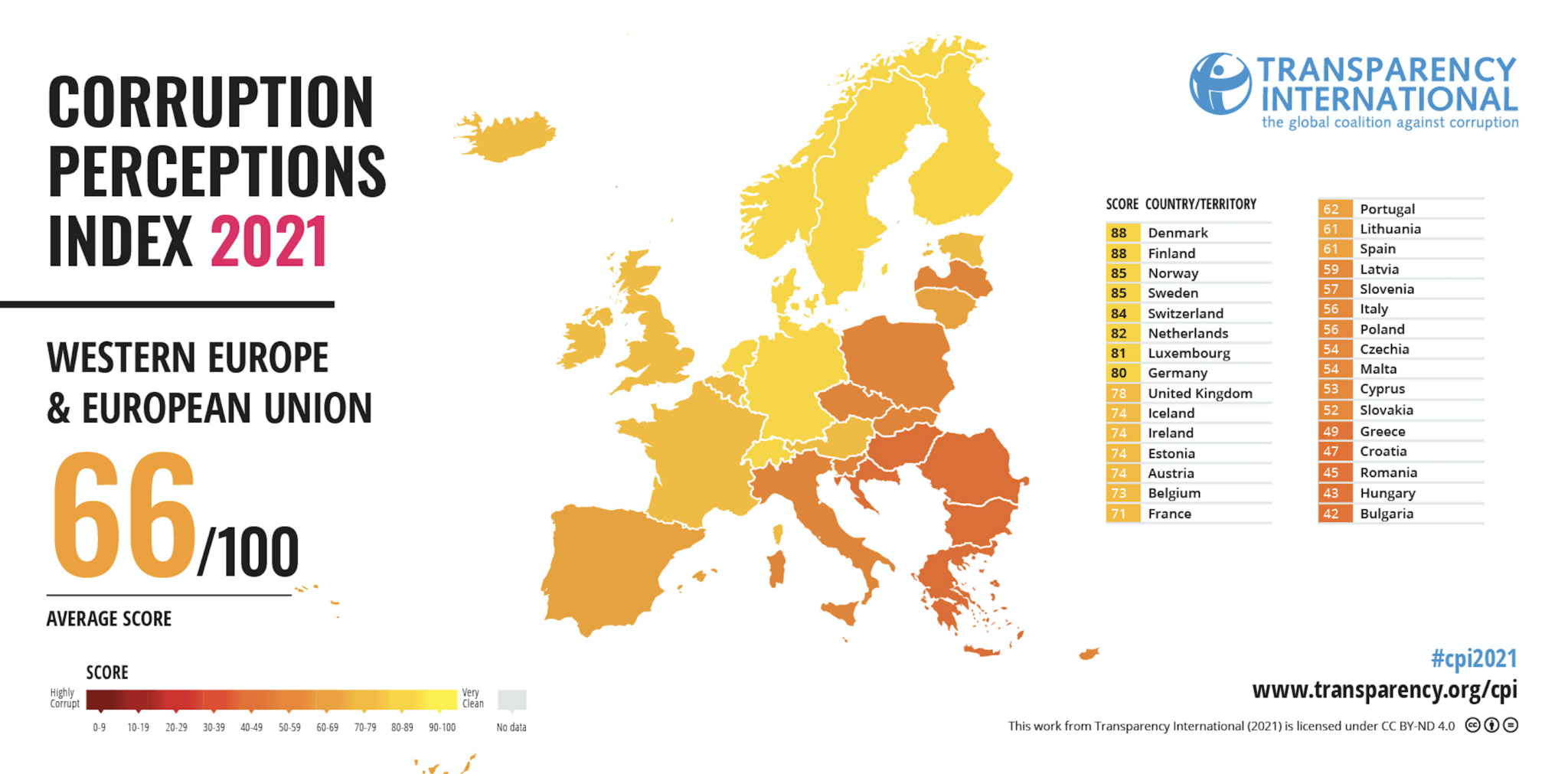Study: Situation in Slovenia and Hungary further deteriorating

The fight against corruption in the European Union is stagnating. According to a new study by Transparency International, EU Member States have not made any measurable progress in the fight against corruption in 2021. The Covid 19 pandemic has further cemented this situation. Reasons for this include a lack of transparency in government procurement of medical supplies and protective equipment (e.g. the “mask affair” in Germany), as well as insufficient control mechanisms in the disbursement of aid and recovery funds.
Three developments:
- For years, SLOVENIA has been considered a role model for good governance in Central Europe. This positive trend seems to have ultimately been reversed. In the current anti-corruption ranking, Slovenia loses three points (from 60 to 57/100). One reason for this is the policies of Prime Minister Janez Jansa during the Corona pandemic. Existing transparency rules were no longer enforced. At the same time, citizens’ rights and media freedom were limited. Trust in the government is declining.
- The perception of corruption in HUNGARY has worsened again in 2021. In the past nine years under Prime Minister Viktor Orban, the country has lost twelve (!) points (from 55 to 43/100). The corruption with EU funds and the damages to the rule of law in Hungary are known to the EU Commission and well documented. Hungary’s constant backsliding is being enabled by the lack of EU-Commission countermeasures.
- GERMANY ranks in the top third in terms of clean governance in EU comparison. However, with 80 out of a possible 100 points, the Federal Republic is by no means living up to its claim to be a role model. There has been no measurable improvement in this area in recent years. Under the government of Chancellor Angela Merkel (CDU), important reforms in lobby transparency were delayed. A lobby register was not introduced until the beginning of 2022. The ‘mask affair’ has had a negative impact on the perception of corruption.
Daniel Freund, Co-Chair of the European Parliament’s Anti-Corruption Intergroup, comments:
“The EUs fight against corruption is stalling. Important tools like the rule of law mechanism are not being used. EU authorities like the European Prosecutor had to deal with too many obstacles. Here we’re seeing the result: no improvements. The issues with countries like Hungary and Bulgaria have been known for years. Yet, the EU response did not go further than emphasizing dialogue. The deterioration in Slovenia is worrisome but not surprising. Jansa made no secret that he considers Orban a role model. If corruption is accepted in the European Union without decisive countermeasures, we will see a further destruction of democratic institutions.”
The EUs fight against corruption is stalling.

